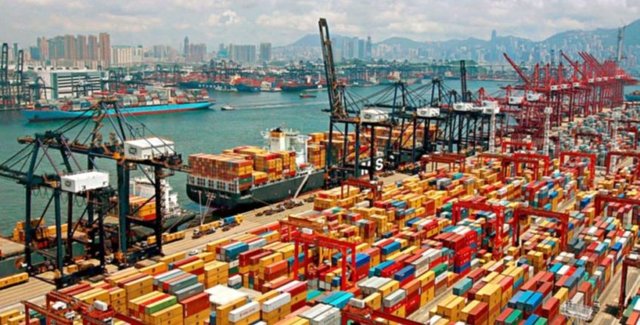An Essay from June 1st: The United State's Waning Leadership on the World Stage
On June 1st, 2017 we found out that the U.S. pulled out of the Paris climate change agreement. Elon Musk had threatened to resign from his national advisor position if Trump followed through with the decision, and he did. From my perspective, the United States was just taking just another step on the path of losing its importance and influence in the world.
Trade
Under Trump, they've left the TPP trade agreement, losing their opportunity to secure western dominance in many of Asia's emerging markets -- even after purposely excluding China from the agreement to ensure trade dominance. These sorts of large scale trade agreements sometimes take up to a decade or longer to iron out. This one in particular accounts for a significant proportion of world GDP (I believe about 40% or more. it's damn big). Despite what you may know about trade agreements, economic growth is an absolute given, and as a country in 2017, you're better off having these trade ties than not. Globalization is unstoppable. To opt for protectionism is to opt for letting the trade train leave without you. China has pretty much been handed control of the terms of trade in that part of the world.
NATO
When meeting with NATO partners, Trump also failed to acknowledge article 5, where an attack on one is an attack on all. There was an overwhelming sense among western leaders that the U.S. could not be relied on anymore following these meetings. Weak leadership in this area threatens the U.S.'s political clout. Countries like Russia and China will likely fill the void. The U.S. may still have the strongest military, but without the support of other nations in their decision making, they'll increasingly find themselves at the centre of criticism with reduced diplomatic effectiveness.
I know from a Canadian perspective, that the federal government's recent decision to increase our military's budget by 73% was on account of the unpredictable/unreliable nature of the U.S. in international affairs.
Climate Change
Now, the U.S. may be the only world super-power to leave the Paris climate change agreement. Trump's reasoning for wanting to leave the agreement is uninformed. He didn't want foreign bureaucrats making decisions for the U.S. The reality is, if he had any understanding of international agreements he'd know they are not enforceable. These agreements are more an acknowledgement of a common goal with support systems to achieve the goal together. To leave the agreement would be more symbolic than anything, showing other countries that the worlds strongest economy isn't concerned with the climate. Why should other countries be then? There is no scenario where pollution and climate change improve by leaving the agreement. With China, the EU, Russia, Canada and just about every important economy in the agreement, they've now lost the chance to take a leadership role in green technology and environmental protection, one of the largest and fastest growing industries in the world (solar alone employs more people than gas , coal and oil combined in some jurisdictions). Why cling to industries that will not be around forever? Even more ridiculous is clinging to shrinking industries at the cost of growing ones -- on purpose!
Today
At this point in Trump's presidency he's already severely impacted or even eliminated the United States' leadership in the areas of trade, NATO, and now environmental protection. Many of us have had a sense the U.S. has been an empire in decline for some time and I think these recent events continue to tell that story . I know it doesn't really matter for some people -- the U.S. can just go about acting unilaterally.... America First, right? But they'll increasingly find themselves with less support from other nations, isolated internationally, and with a shrinking interest in their position in world affairs, likely taking investment with it.


meep